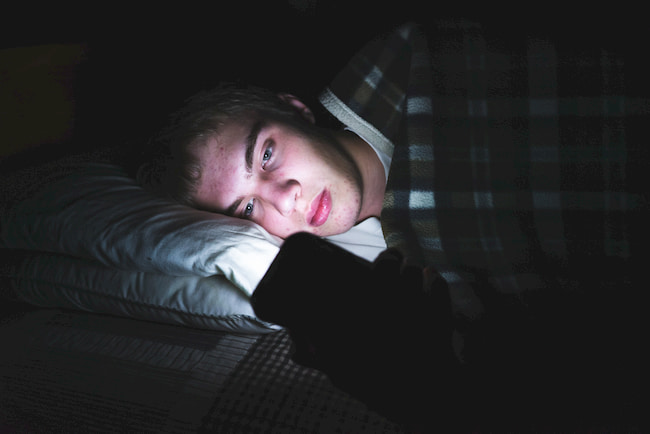When it comes to older children and teens, the impact of the ongoing pandemic on mental health should not be overlooked. Decreased social interaction with peers and extended family, changes in routine and future plans, and building tensions from extended periods spent in close quarters with others – not to mention domestic violence or loss of a family member due to COVID-19 — could all be contributing factors to your teen feeling anxious, depressed, or isolated. Even “grown up” issues like loss of income may seem like they only impact parents, but when there is stress in the family, it impacts everyone.
“We have seen dramatically increased numbers of teens seeking help for mental health struggles during this time,” noted Dr. John Heise, Adolescent Medicine specialist at Children’s Hospital at Erlanger.
“There has been a substantial increase in eating disorders, self-injury, suicidal thoughts and even suicide attempts among kids and teens both locally and at the national level.”
What can parents do to help kids and teens stay well during this time?
“First of all, give them space to share their feelings and listen without judgment,” said Dr. Heise. “This is a new experience for all of us but the ongoing fear and uncertainty may be especially tough for children and teens who have not yet learned the coping skills that many adults have.” He also recommends learning to recognize signs of distress – including depression and anxiety – “and don’t hesitate to reach out to your pediatrician or a family mental health provider for help.”
When to seek help: What are the signs to watch for?
In older children and teens, signs of distress may look like:
- shifts in mood that are abnormal for your child such as irritability, hopelessness, rage, or frequent conflict with others.
- changes in behavior such as no longer showing interest in favorite activities or in communicating with friends.
- trouble sleeping or sleeping more often.
- changes in weight or eating patterns.
- risky behaviors such as using drugs or alcohol.
- problems with concentration or memory.
- talking about suicide or frequently thinking about death or suicide.
Self-care and mental health precautions
Over the past year, we’ve all learned how to take better physical precautions to prevent virus transmission: washing our hands, wearing a mask, keeping a safe distance from others. But there are self-care measures and mental health precautions we can take to help guard ourselves against the very real mental and emotional impact of an ongoing pandemic — and the good news is that, like with hand-washing, the basics can go a long way!
- Healthy eating habits. Regular meals are important for any growing child, but it is especially important when we are stressed because hunger and blood sugar irregularities can impact our emotions and even cause us to act out of character. If possible, ensure that your child has access to healthy meals and snacks and help them limit caffeine and sugar.
- Quality sleep. Getting enough quality sleep supports our physical health by boosting our immune system, regulating our hormones, and to give our body time to rest and repair. But it also has a huge impact on mental health as well! Sleep is the ultimate relaxation and, when we don’t get enough it can severely impact our mental and emotional state. Most young people need seven to nine hours of sleep per night to function properly. The best way to ensure enough sleep is to establish a bedtime routine — with regular times to go to bed and to wake up. It is a good idea to limit caffeine and to avoid all screens in the last hour before bed.
- Physical activity. Getting regular exercise may be one of the most important self-care factors for optimal mental health. That’s because it reduces stress, improves sleep quality, improves physical health and may even boost self-esteem. Encourage your child to find an activity that they enjoy to get at least 60 minutes of physical activity a day. It could be anything from walking, to riding a bike, dancing, yoga, or cardio videos on YouTube — anything that gets the heart pumping!
- Find stress relievers. Your child or teen may benefit from meditation or yoga, both of which can be explored for free via videos on YouTube or with free phone apps such as Insight Timer. Other stress-relieving activities might be journaling, creating art, or just sitting in silence. It doesn’t have to be for long; even a little bit of solitude can go a long way.
Do you have concerns about your child’s mental health? Make an appointment with your pediatrician to discuss a plan to keep your child safe and well — physically and mentally. Don’t have a pediatrician? Find one here.







